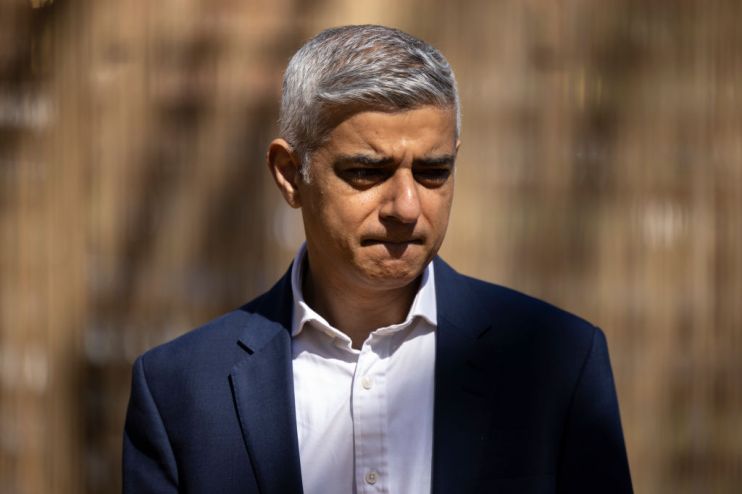Sadiq Khan blames govt funding for ‘extremely frustrating and disappointing’ tube strike as Unite joins RMT walk-out

City Hall lambasted the government’s refusal to grant Transport for London (TfL) long-term backing, blaming it for indirectly causing the tube strike scheduled for 21 June.
The strike is the latest disruption to affect the Transport for London (TfL) network after 4,000 tube workers walked out on Monday.
“At the heart of this industrial action is the government’s appalling approach to public transport across the country, not least its continued resistance to delivering the sustainable funding TfL desperately needs,” said a spokesperson for London mayor Sadiq Khan.
Khan did not hesitate to criticise the walk out, calling it “extremely frustrating and disappointing.”
“In London, TfL has made clear that nobody has or will lose their jobs, and there are no proposed changes to pensions,” City Hall added. “That’s why the mayor urges the unions to call off this action and to work with TfL to find a resolution.
The mayor’s words came on the same day members of the union Unite working for Transport for London (TfL) and London Underground announced they would join the strike called by RMT members working for the tube network.
The union said more than 1,000 of its members would join the 10,000 workers striking over job cuts and the review of TfL’s pension scheme, with services potentially disrupted on 22 June because of shift patterns.
“It is not acceptable in any way, shape or form that the dedicated workers at TfL and London Underground are being told to pay the price of the pandemic with their pensions, pay cuts and threats to their jobs,” said Unite’s general secretary Sharon Graham.
“These unwarranted threats to our members’ retirement savings, pay and jobs must be taken off the table at once or strike action will hit the London transport network.”
The walkout was made to coincide with the first of a three-day national railway strike called by the RMT after Network Rail axed 2,500 maintenance jobs.
The combination of the two strikes is set to create travel mayhem, bringing the capital to a potential standstill, especially as passenger numbers are slowly returning to normal.
According to figures released by the Department for Transport (DfT), tube users soared during the Jubilee Bank Holiday weekend, going up 118 per cent and 108 per cent on 2 and 3 June respectively.
The figures marked the first time passenger numbers exceed pre-Covid levels since March 2020.